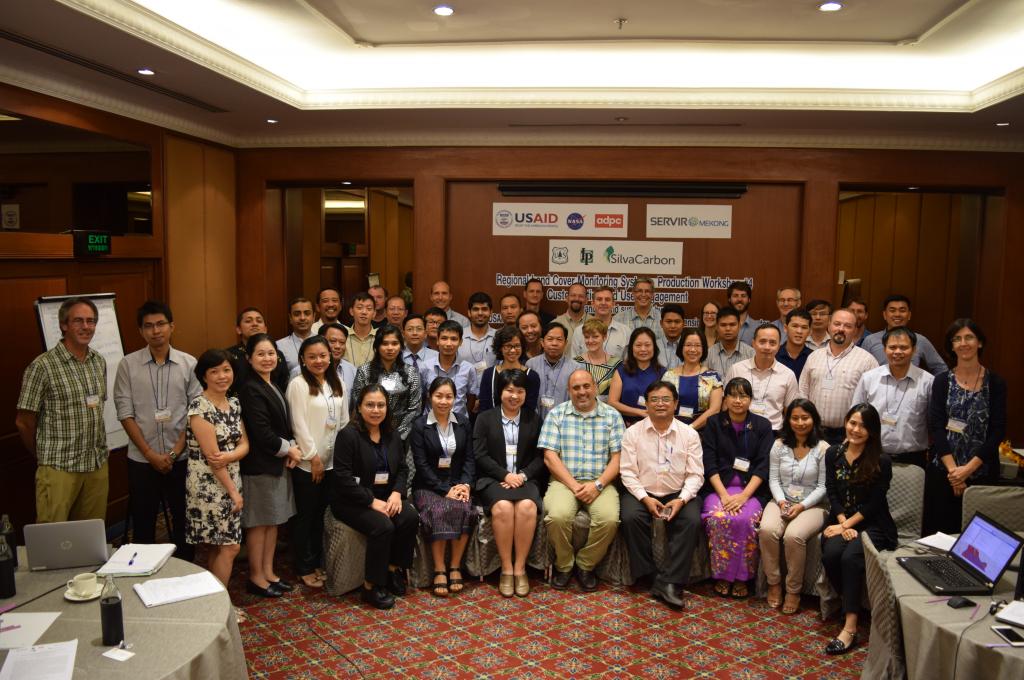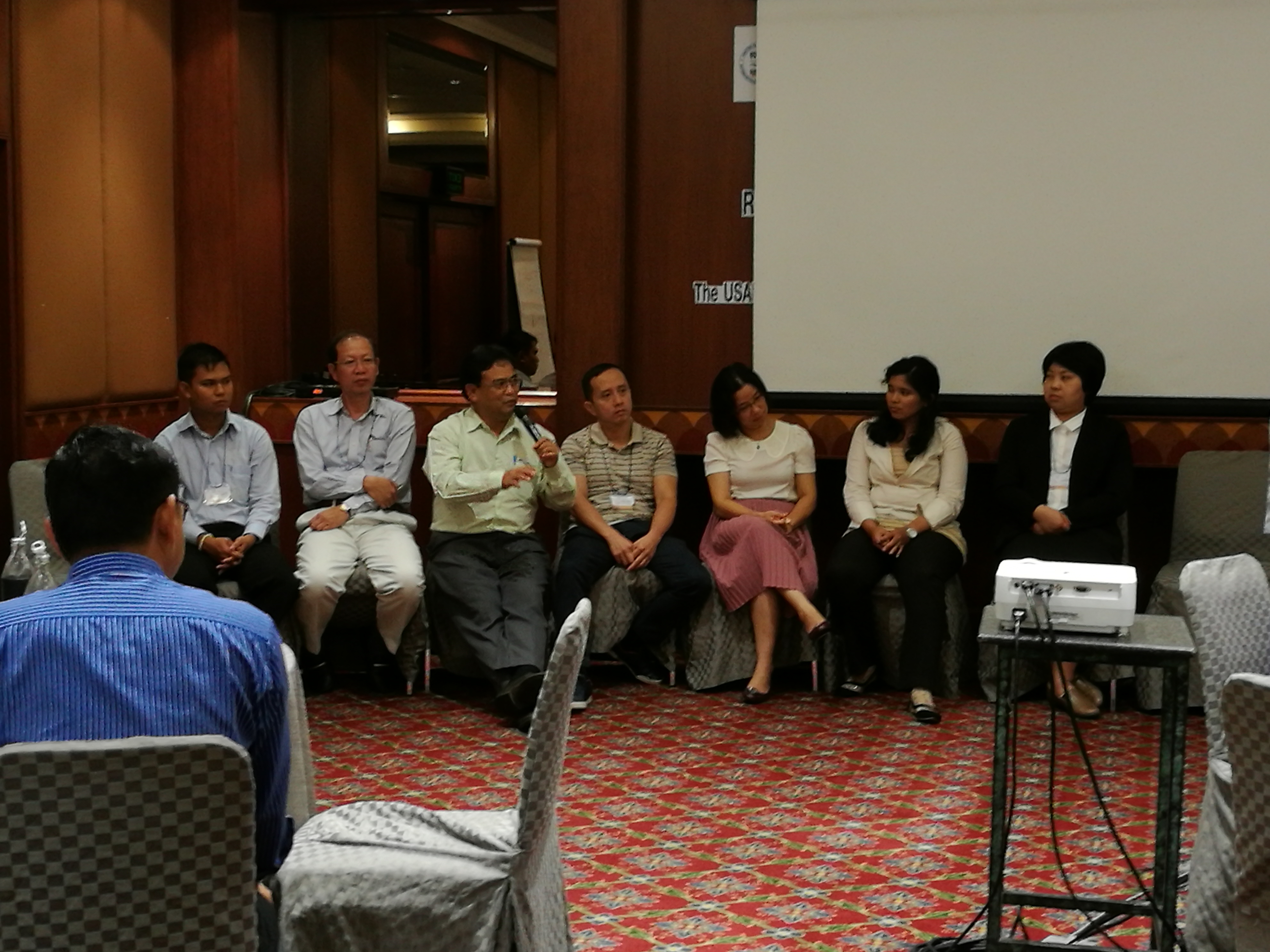Building Capacity in the Mekong Region to Monitor Land Cover

SERVIR-Mekong hosted the 4th Regional Land Cover Monitoring System (RLCMS) Production Workshop in Bangkok from 1-3 August 2017. Drawn from various countries in the Mekong region, participants included technical experts representing government agencies as well as academics and international organizations involved with the application of the RLCMS tool and products.
Workshop participants learned to customize the system and developed a plan for implementing it in their work. Depending on the capacity of partners, the implementation plan for each organization will focus on training and capacity building or algorithm development for customizing the RLCMS tool for their application.
This 4th workshop continues to champion the partnership approach introduced in the previous 3 workshops. Participating organizations and agencies collaborated to build the RLCMS system together, and now will work together to customize the system for the country’s own development contexts. For example, multiagency teams from Vietnam and Myanmar are planning how they can use the system to help their country measure progress and report on plans to tackle climate change. They will co-develop annual maps and statistics to show the level of greenhouse gas emissions, which will be used to manage activities to lower emissions and to report to the United Nations Framework Convention on Climate Change (UNFCCC).
The workshop also highlighted the importance of partnerships within the education sector to support sustainable use of the RLCMS in the future. University partners emphasized the importance of knowledge building on these tools and methods from an early stage to ensure that skilled practitioners are available to apply these analytical methods to assess and manage climate and environment problems. Several strong commitments to building knowledge of students and lecturers were made by government agencies.
Pham Ngoc Hai, a researcher at the Remote Sensing and Information Technology Center (RITC), Forest Inventory and Planning Institute (FIPI) in Vietnam, said that he plans to apply the knowledge from this workshop and previous SERVIR-Mekong and FAO trainings to monitor and measure the forests in Vietnam for FIPI. In addition, he plans to teach at his old university, Hanoi University of Science, to build students’ technical knowledge.
“I am happy to work with SERVIR-Mekong. Trainings such as this have allowed me to have new visions to produce fast and quality mapping to be applied to my work and research,” said Hai.

SERVIR-Mekong will continue to work with participants and organizations from this workshop to ensure they are able to use, adapt, and maintain the elements of the RLCMS tool to help deliver services in their countries to help lower risks from climate and environmental change, including disasters.



